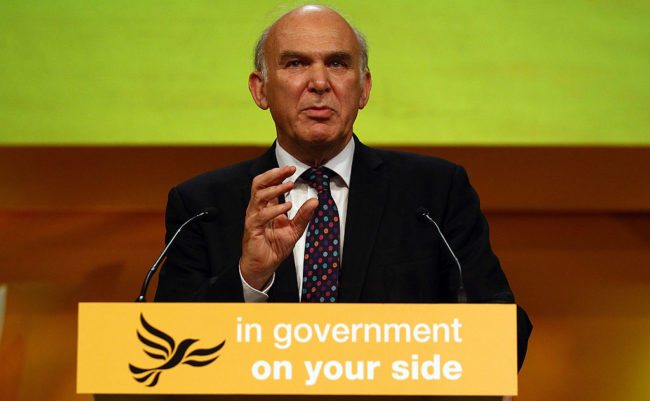What does new Lib Dem leader Vince Cable think about LGBT rights and gay sex?

Sir Vince Cable has succeeded Tim Farron as leader of the Liberal Democrats – will he be a force for good on LGBT rights?
The former Secretary of State for Business, Innovation and Skills was named the new leader of the Liberal Democrats today, following the resignation of Tim Farron – who quit after a row over his views on gay sex.
Of the party’s 11 other MPs, Sir Vince Cable was the only candidate to put forward his name, meaning he automatically becomes the leader today by default.
Though we’re sure the question will be put to him many times in interviews to come, it would appear from his voting record on LGBT issues that Sir Vince does not have any hang-ups about gay sex.
An MP since 1997, Sir Vince has had an opportunity to vote on many LGBT reforms.
In 1998, Sir Vince voted to reduce the age of consent for homosexual acts from eighteen to sixteen, helping bring equality to the the law affecting heterosexual and homosexual acts.
In 2002 he cast a vote in favour of same-sex adoption, and in 2003 voted to repeal Section 28, a Conservative law that had banned the ‘promotion’ of homosexuality in schools.
One year later, in 2004, he backed the creation of civil partnerships for same-sex couples, helping secure vital legal rights for same-sex couples for the first time.
Sir Vince joined the government in 2010, when the Lib Dems went into Coalition with the Conservatives.
He had initially wavered on equal marriage, telling a constituent previously that “my own personal view is that the status quo [civil partnerships] is fine” – but the minister quickly came around to the reform.
In 2013, he voted strongly in favour of allowing same sex couples to marry, after his fellow Lib Dem Lynne Featherstone brought through proposals on the issue.
As Secretary of State for Business, Innovation and Skills, the Lib Dem championed workplace diversity.
Speaking to PinkNews in 2014, he said: “One of my jobs in government is to promote diversity in the workforce, particularly in positions of leadership.
“We do this not to be legally compliant or to be politically correct, but that it’s actually good business. Businesses should be tapping into all their employees, and the best of their talent, and they’re always better if led by people who represent their own workforce and consumers. That message is beginning to be understood.
“We’ve made real progress where women and BME people are represented on the boards of top companies, and I want to make sure we do the same with LGBT people.”

